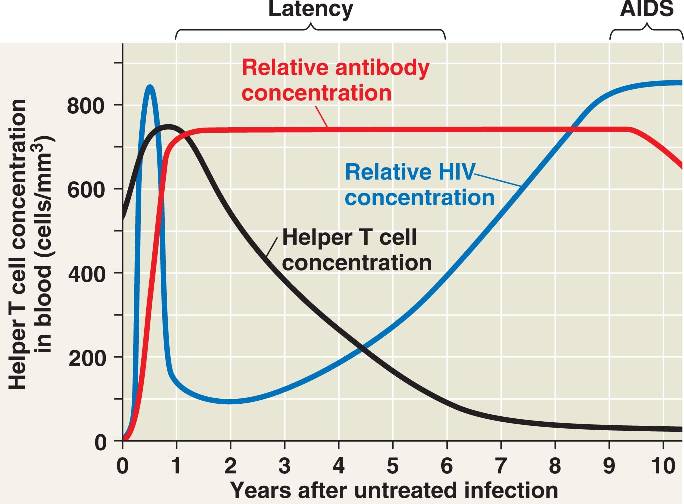
 The HIV virus
infects helper T cells, and can often survive the initial immune response by integrating into host DNA
during a period of latency.
The HIV virus
infects helper T cells, and can often survive the initial immune response by integrating into host DNA
during a period of latency.
HIV also mutates rapidly, leading to change in epitope expression and allowing it to elude antibodies produced in response to the initial infection.
The loss of helper T cells impairs both the humoral and cell-mediated immune responses and leads to Acquired Immunodeficiency Syndrome (AIDS).